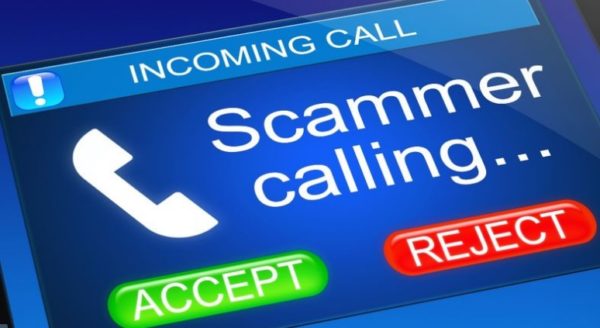Police warns Malawi women on scammers
Malawi Police Service have warned women in the country to refrain from giving out personal information to strangers, dating on social media and making payments through Airtel Money or Mpamba.
Kamuzu International Airport (KIA) Police Spokesperson, Inspector Sapulain Chitonde Lee said police have observed that many women and girls fall victims of such scams.
“We have been receiving calls from victims across the country, complaining that they have been duped by scammers who told them to send money via Airtel Money or Mpamba to clear their parcels at our airports allegedly sent in by their relations abroad,” he said.
He explained that others reached a point of hiring a taxi together with security officers to protect them when they would be collecting their parcel ‘containing millions of Pounds and Dollars’ which turned out to be a scam.
According to the spokesperson, the scammers use local mobile lines to make contacts with unsuspecting individuals and victims through a friend request on social media until they win their trust which ends into an online friendship.
“Later the scammers tell their innocent victims that they have sent them a parcel which contains assorted items such as United States Dollars as well as British Pounds,” he said.
Chitonde Lee said some of the fake messages commonly sent to victims include “I am back from shopping and I bought you an iPhone7, laptop, plus 2 hand bags, 1 travel bag, golden ear rings, 3 pieces of necklace, golden wrist watch, 2 shoes.”
Another message reads: “Babe I put 65,000 Pounds inside the gift parcel for you and the airport agent told me that they will deliver it some hours to your country Malawi okay.”
The police said the texts bear British numbers and follow instant calls (less than 24 hours) that bear local numbers notifying unsuspecting victims about the parcel at the Airport.
Lee said the most used agent name is Delta Courier Services, but said there is no such name or agent at Kamuzu International Airport in Lilongwe or Chileka in Blantyre


Kukonda ndalama mahule. Why not make your own money
The problem is twofold . Malawian women are greedy for money and Malawian men are useless. There it is
This police spokesman should have said there is no security in the country. Does he mean that these local phone numbers can not be traced the we were told that Mobile phone operators should register their customers numbers with National IDs.
My old mum once told that if something is too good to be true, probably it is not. I have now told my young girls the same thing and trust me, they will not fall into these scams. Let us teach our kids basics, now that scammers are all over us.
This is the commonest trick in the book. Usually referred to as a 419 Scam (derived for Section 419 of the Nigerian Penal Code that deals with such type of crime).
It’s strange that it’s only gaining traction in Malawi now as this has been going on in most countries like South Africa for the past 10 to 15 years. My guess is that these crooks (usually Nigerians) have seen that most countries they were targeting before have now gotten used to the tricks (especially with the speed people report such things on social media). And they are now looking for new fertile ground like Malawi where internet penetration is still a bit low and we are only getting exposed to things like mobile money.
Problem is if these people are using foreign telephone numbers, there is no way those numbers can be traced. So if the money is sent, one can kiss it good bye.
Richard Carlson said: “if it sounds too good to be true, it probably is”. Of course this saying can sometimes stop one from pursuing real opportunities, but one must exercise caution and common sense. For example: if one gets an email that they won some competition, yet they did not enter, that should already raise red flags in your mind. Or someone wants your banking details because they work at some bank that holds money for some deposed (usually West African) dictator and they want someone to send the money to outside the country, already that should ring bells – besides, even if it were true, that would be deemed illegal and one would be liable to answering money-laundering charges or similar.
For scam emails, look for: mentioning of names of some high ranking famous official’s name (e.g. Mrs Sani Abacha, Mrs Graca Machel etc), some obscure email addresses, grammatical mistakes – you don’t really expect some high ranking bank employee making such types of mistakes (well maybe rarely)
General rule of the thumb used here is South Africa is: “if a person you haven’t really seen but you are ‘supposedly’ in a relationship with starts asking you to send them money or airtime or banking details” – RUN as fast as you can because 99.9%, they are trying to scam you.
The big problem in Malawi is that every single person is looking to get rich. This is the reason everyone is busy selling rubbish on social media. How stupid can one be? £65000 is not 65000MK. Even in the UK, you don’t get people giving a girl friend £65000 unless you are dating Lewis Hamilton. Lack of exposure and education is contributing to these. A normal person will know that not a lot of companies like DHL or FedEx accept any parcel with cash in parcels.
You can pick any number from any country and use it for free on the internet. It is simple!!
😂 😂 😂 😂 😂 you’re talking about normal people. Are slay queens normal people? 😂😂😂😂😂